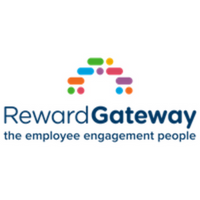Pay vs company culture – which is more important for recruitment and retention?

To answer the question, pay vs company culture – which is more important for recruitment and retention? We need to look at the two aspects separately.
First, recruitment or “the persuasion stage”. For any candidate, there are many factors which will be important as they move through the process of interview. For example, how does the job sound, what is the title (yes, titles are still important for many people), where is it located, what are the broad terms and conditions, and what can they find out about the benefits a company has?
Each of these could rule someone in or out of applying, and the biggest factor is often their current circumstances – what is their title, what is their annual leave allowance, how is their job comprised, and then, what will the changes be for them?
If these components are interesting enough then becomes a two-pronged candidate thought process:
- What will it be like to work here (the job, the team and the offices)?
- What will I earn when I am here?
Although a job may be advertised with a salary range, the job of all recruiters is to share what the job will pay, so that the candidate will accept that figure – the negotiations, if they occur, normally start later.
Then, as we move through the interview process, the culture becomes the driving factor. People decide whether to join a firm based on any of the following cultural aspects – the mission, the values, Glassdoor statements about “culture” and behaviours and what it is really like to work there, the work flexibility, the dress code, the free food and drink, the team events, the working from home component, the working hours, and the general expectation of how the job is done. This then collides with the other side of the conundrum, what will my manager and team be like – how will I be managed, and how do we work as a team?
If what they see and read sounds appealing and the company likes them, then the final conversations about pay begin.
So, in summary, during the recruitment phase, it is first pay, then culture and then finally pay, which will be the important factors for a candidate.
Should I stay or should I go now?
Much of what is true for recruitment flows into retention, though there are some important areas to be considered. This starts with the employee assessing whether what they were told by the employer during the recruitment phase was true. Questions the employee may ask themselves during this phase could be:
- Is the culture (how they say the company is) what I expected?
- Am I enjoying what they said the role would be?
- Is working with the team and manager enjoyable?
In short, they ask themselves, am I engaged with this job? If the answer is yes then the chances of them staying are very high, if not then the chances of them staying will be centred more around their pay.
A complicating factor within this, is whether someone, whilst engaged and loving their job, is being paid at a level which is enhancing or detracting from their engagement levels.
Pay is perhaps the hardest aspect to get right for a business, because of the absence of any homogeneous alignment among employees. However, there is a mindset and a strategy which you can look at for help.
To start with, read the brilliant book Drive by Dan Pink. Pay can be a disengagement factor, but if an employee is paid at the right level it takes the pressure of pay off the table. So ask yourself this – are my employees being paid at the right level of base pay? If this is so, then their engagement will be unfettered, and the chances of them staying are increased.
What does this all mean?
As an employee knows the pay when they join, the chances of their pay being correct in their early career with a company is high. This means that the key consideration to staying is whether the culture they were sold matches the promise. But for a more long-standing employee they will have adjusted to the culture and even accepted one that is not 100 per cent what they wish, so are more likely to be driven by the fairness of pay in whether they stay.
These are very linear arguments as these decisions are complex. However, in summary, both have an impact and depending where you are in your employee lifecycle with a business will determine which one is most important for you.
The author is Robert Hicks, group HR director, Reward Gateway.
This article was provided by Reward Gateway.
In partnership with Reward Gateway
We help the world's leading companies with an employee engagement platform.







